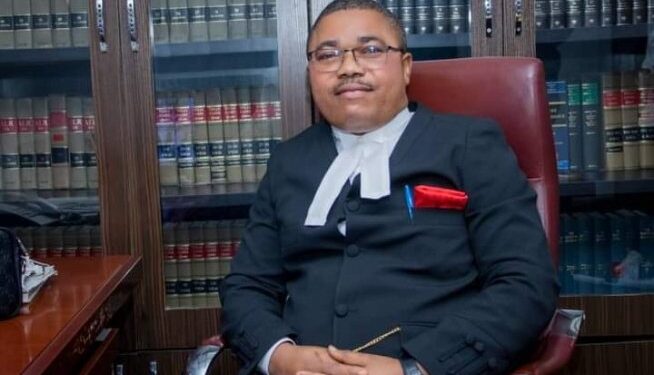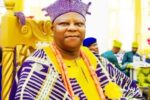Nigeria Is Bleeding; Leaders Of Tomorrow Now Instruments Of Yesterday’s Chain – IPOB Lawyer Ejiofor

Human rights lawyer and legal representative of the Indigenous People of Biafra (IPOB), Barrister Ifeanyi Ejiofor, has sounded the alarm over what he calls a worsening national crisis in Nigeria, expressing concern over the growing involvement of Nigerian youths in sustaining the same societal flaws they once vowed to challenge.
In a statement he issued on Wednesday titled “A Nation at the Crossroads: When Tomorrow’s Leaders Become Instruments of Yesterday’s Chains,” Ejiofor painted a grim portrait of a country unraveling, not through cataclysmic collapse, but through a “quiet rot” emanating from the nation’s core.
“Nigeria teeters on a fragile edge – not with the thunderous collapse of a broken dam, but with the quiet rot of a house neglected from within,” Ejiofor said.
The lawyer condemned what he sees as a betrayal of the younger generation’s promise, warning that the youths, once the beacon of Nigeria’s future, have been co-opted into becoming foot soldiers of yesterday’s tyranny.
He said, “What gnaws at the soul is not just the slow decay of institutions or the hollowness of leadership, but the haunting reality that the torchbearers of tomorrow have become foot soldiers of yesterday’s tyranny.
“Once heralded as the pulse of our collective hope, the Nigerian youth now stand disoriented at history’s intersection – many seduced, some coerced, and others willingly enlisted into the very machinery that has long stifled their future.”
Ejiofor lamented the misuse of young minds and talents, noting that many now serve as shields for the corrupt and saboteurs of national progress.
He described the situation as a systemic betrayal, marked by underemployment, social disillusionment, and the glamorization of toxic influencers who wield misinformation for clout.
“How tragic it is to see vibrant minds and gifted hands diverted from purpose, repurposed into shields for the corrupt and saboteurs of national progress,” Ejiofor stated.
“These are not isolated acts of desperation. This is a systemic betrayal.
“Graduates drift through life with CVs that gather dust and dreams that gather rust. The streets swell with disillusioned intellects, many of whom find false comfort in the arms of crime, drugs, and the theatre of online venom,” he added.
As Nigeria edges closer to the 2027 general elections, Ejiofor warned of an ominous trend: the strategic use of youth as agents of digital manipulation, political thuggery, and division.
According to him, rather than being empowered to reform society, young Nigerians are increasingly weaponized to reinforce the status quo.
He also decried the rise of what he termed chaos merchants, social and political influencers who distort truth for personal gain and draw support from a populace worn down by apathy or indoctrination.
He said, “Their energies – once meant to build – are now bartered for petty tokens of survival or, worse, applause from power brokers who feast on dysfunction.
“As 2027 looms, a darker playbook unfolds: not one of civic enlightenment, but of digital thuggery, political puppetry, and divisive echo chambers. The youth – Nigeria’s beating heart – are being weaponized not for reform, but for ruin.
“Even more disturbing is the glorification of chaos merchants – those who trade truth for clout, who poison minds with distortions, who build empires from lies.
“They do not whisper in corners; they shout from platforms, drawing cheers from crowds too exhausted to care or too programmed to resist.”
Despite the scathing critique, Ejiofor maintained that all hope is not lost, and therefore called for self-reflection and action, urging the youth to reclaim their agency and become “architects” of a new Nigeria.
According to the lawyer, “Nigeria is bleeding in places numbers can’t measure. And the knife, too often, is held by the hands that should be healing her.”
But “We are not without hope – but hope cannot thrive in denial. The youth must reclaim their agency. They must become more than echoes of failed men. They must choose the long, painful road of truth over the quick fix of allegiance to rot.
“This is not merely a political call – it is a moral reckoning.”
Ejiofor therefore stressed, “Our crossroads is not just national – it is generational. And every compromise made today will echo through a tomorrow that might never come.
“Let the youth rise – not as tools, but as architects. Not as hashtags, but as harvesters of a new dawn.”
Ejiofor’s remarks add to a growing chorus of voices demanding introspection and systemic change in Nigeria, where economic hardship, insecurity, and disillusionment with leadership continue to shape the national mood.





